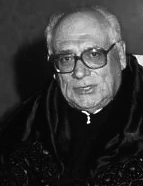

Without prejudice to the importance of his other achievements, his greatest contribution to the construction of the modern history of Portuguese literature is undoubtedly the doctoral thesis he presented in 1973, which he would reprint in the final years of his life. In fact, this work draws on a vast collection of printed and manuscript documents, especially those that were unpublished or had yet to be studied. Emphasising the importance of rhetoric and normative poetics for the knowledge of literary creation, but also for pedagogy and the transmission of cultural assets in general, AC built not only an innovative work in the context of Portuguese and peninsular culture but also an indispensable reference for anyone who wishes to gain an in-depth understanding of the evolution of literary dynamics in Portugal and Spain over more than three centuries (between Humanism and Neoclassicism).
In addition to bearing the stamp of a generation of philologists who were , above all , ‘great readers’, AC’s literary-historical culture also reflected a strong and intense curiosity, which even brought him into contact with so-called ‘minor authors’. What could at first be considered a mere research drift was based on two very important assumptions for the historian of literature that AC really was. In fact, although less read by posterity, these creators ultimately contributed, in their time, to the establishment of the dominant aesthetic codes. Finally, it is important to note that in these same authors (and not so much in the so-called major authors ) , these codes can be appreciated more widely and in a more stabilised way.
His unusual interest in a large number of ‘forgotten’ authors did not, however, prevent him from concentrating on a small group of ‘chosen ones’. He recognised in them an exceptional capacity for irradiation and attached undisguised intellectual affection to them. This was certainly the case with Luís de Camões, António Vieira, and Camilo Castelo Branco.
This work is financed by national funds through FCT - Foundation for Science and Technology, I.P, in the scope of the projects UIDB/04311/2020 and UIDP/04311/2020.
